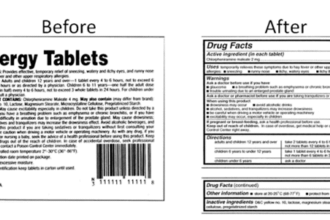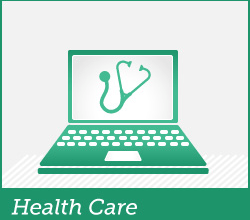The US Department of Veterans Affairs has been taking it on the chin of late with allegations (and proof) of delayed appointments and care at some facilities, and charges that these delays have led to poor outcomes and even death. From what I can tell, most of the serious delays in treatment are more a symptom of bad management and strained capacity in VA facilities than poor technology and substandard care provided by clinicians.
The US Department of Veterans Affairs has been taking it on the chin of late with allegations (and proof) of delayed appointments and care at some facilities, and charges that these delays have led to poor outcomes and even death. From what I can tell, most of the serious delays in treatment are more a symptom of bad management and strained capacity in VA facilities than poor technology and substandard care provided by clinicians. In fact, in recent years the VA has been highly acclaimed for its use of electronic records and excellent quality of care. That’s why I was pleased to see some positive news reported in mHealthNews regarding steps the VA is taking to better connect the nation’s veterans with their health information.
 The VA plans to release mobile versions of two popular desktop applications that provide access to veterans’ medical records. Mobile versions of the Summary of Care desktop application and the Blue Button application will soon be available in the VA’s app store. mHealthNews reports that several more apps are expected to be released as the department “fast-tracks its mHealth efforts”.
The VA plans to release mobile versions of two popular desktop applications that provide access to veterans’ medical records. Mobile versions of the Summary of Care desktop application and the Blue Button application will soon be available in the VA’s app store. mHealthNews reports that several more apps are expected to be released as the department “fast-tracks its mHealth efforts”.
That the VA is leading a charge in mHealth isn’t surprising. Think for a moment about the changing demographics of veterans who use VA facilities for their care. The large numbers of men and women entering the VA system after serving their country in Iraq, Afghanistan, and other trouble-spots around the world are a generation of digital natives. If you want to connect with them and engage them in managing their health, there’s no better way to do that than via a mobile device which is most commonly their smartphone.
I’ve written extensively on ways to improve health information exchange and the importance of putting patients at the center. Whether that means aggregating health data in a secure, cloud-based service under the patient’s control, or storing it “locally” on a personal device, either method puts patients in control of their health data and enables a patient-centered vehicle for global health information exchange.
Considering the changing demographics of the VA population, I wasn’t surprised to read that some VA doctors are reporting 25 percent of patients under their care now storing and managing health information on a mobile device. As also reported by mHealthNews, some of the telehealth pilots run by the VA have helped reduce veterans’ hospital stays by 58 percent and cut medical costs around $2000 per patient. In a system that has been suffering from both cost and capacity constraints, one can be hopeful about technologies that help the VA extend their reach beyond traditional care facilities and better meet veterans’ needs for health information and medical services. Although mHealth or telehealth deployments won’t address every need, I must applaud the VA for thinking out of the box and taking a lead in the use of creative strategies to provide better health services to a most deserving population.









